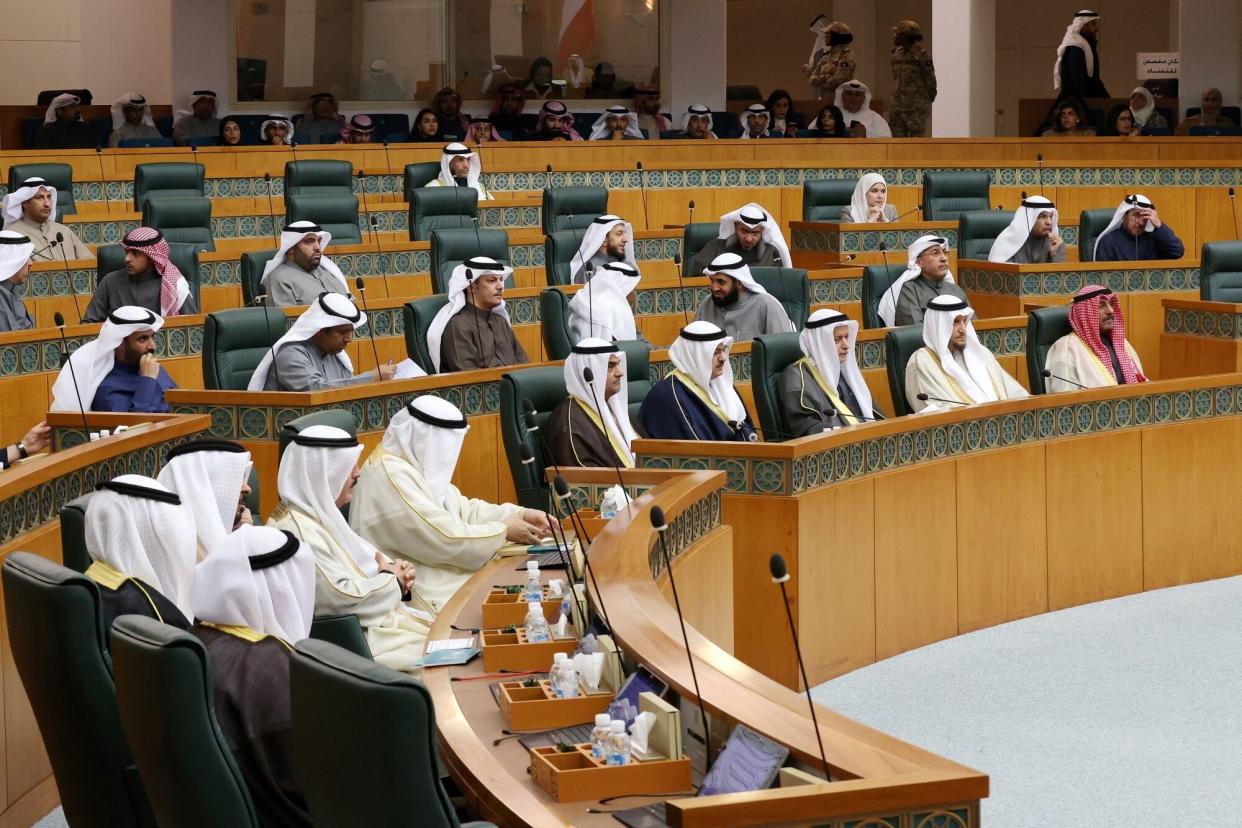Kuwait’s Ruler Suspends Parliament to End Political Deadlock

(Bloomberg) -- Kuwait’s ruler suspended parliament for as long as four years in what he termed an attempt to prevent the Gulf state from “collapse” after years of political gridlock.
Most Read from Bloomberg
Trump Vows ‘Day One’ Executive Order Targeting Offshore Wind
GameStop Shares Soar as ‘Roaring Kitty’ Revitalizes Retail Frenzy
China to Start $138 Billion Bond Sale on Friday to Boost Economy
Tesla Rehires Some Supercharger Workers Weeks After Musk’s Cuts
The move has plunged Kuwait’s political scene into greater uncertainty. It’s the third time the Gulf state has tried to fix its political system, and the latest attempt to amend the constitution is a deeper sign of political dysfunction.
“Unfortunately, we have faced some unimaginable, unbearable difficulties and impediments,” Emir Sheikh Mishaal Al-Ahmed Al-Sabah told the nation late Friday. “We were left with no option other than taking this hard decision to rescue the country and protect its higher national interests, and resources of the nation.”
A committee will be formed to study all aspects of the country’s democratic journey, “presenting the results to us, so that we can take the appropriate measures,” he said. Political turbulence had reached the point where he could no longer stay silent, Sheikh Mishaal added.
The emir accused elected lawmakers of infringing on his constitutional rights as ruler. His decision effectively transfers the powers of parliament to the executive branch, without actually changing the system of government. Unlike its Gulf neighbors, though, freedom of press and speech is still in effect in Kuwait.
Read more: Kuwait Gets Fifth Premier in Five Years as Cabinet Reboot Looms
In April, the 83-year-old emir, who has a law-enforcement background, appointed the country’s fifth prime minister in as many years, amid deep political instability that’s gripped the OPEC member state. The new premier, Sheikh Ahmad Abdullah Al-Sabah, is in the process of forming Kuwait’s 13th ministerial lineup in a decade.
Dysfunctional politics have plagued Kuwait for years, with elected lawmakers repeatedly clashing with government ministers appointed by the ruling Al-Sabah family.
That’s left those overseeing the oil-dependent economy unable to enact reforms. Parliament, the emir said, had become “a theater for all that’s unfamiliar and unacceptable.”
Kuwait is a key US ally in the Middle East, one of the world’s biggest oil exporters and among the least indebted nations. It’s home to a sovereign wealth fund that’s amassed well over $800 billion in assets.
Until the emir’s overnight move, Kuwait’s newly elected parliament was scheduled to open on Tuesday.
Read more: Kuwaiti Wealth Fund Set for Banner Year After Bet on US Equities
Previously, parliament was dissolved unconstitutionally in 1976 and 1986. Both attempts ended in failure with a full restoration of the constitution. And both times, there was major political conflict in the country.
For now, Kuwaitis are taking stock of the news and it’s unclear if the country’s political and social groups will react as they previously did.
The emir, who succeeded his half brother in December, is yet to name an heir apparent. He would normally need the endorsement of parliament for his crown prince nominee.
In Friday’s speech, Sheikh Mishaal said some people had interfered with his power to choose a crown prince, and that he wouldn’t allow democracy to be exploited to “destroy” the country.
--With assistance from Sylvia Westall.
(Updates with more detail throughout.)
Most Read from Bloomberg Businessweek
Cheap Prison Labor Is Keeping People Locked Up Longer, Suit Alleges
‘The Caitlin Clark Effect Is Real,’ and It’s Already Changing the WNBA
©2024 Bloomberg L.P.


